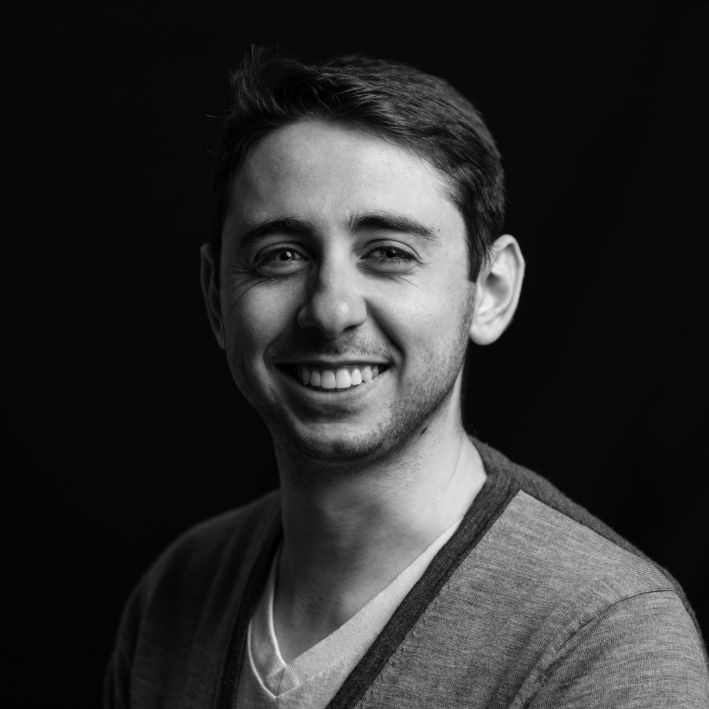Recovering from Panic Disorder and Pure-O
A message of hope for those suffering.
Written by Jotham Sadan

01 Jotham lived with generalized anxiety for most of his life, but it finally came to a head three years ago in the worst panic attack of his life.
02 After being given medication and breathing techniques, he saw no improvement, causing him to feel even worse.
03 After finding the right books on the subject, he slowly started to change the behaviors that were causing his uncomfortable symptoms, causing his body to readjust.
04 Now, it’s been years since Jotham has had a panic attack, though he holds these few years close to his heart and plans to devote the rest of his life to helping others.
“This is how life is going to be from now on.”
These were the words spoken to me by my psychiatrist. I was in the middle of the strongest anxiety attack of my life, looking for answers. I was so nauseated I couldn’t eat, so filled with adrenaline I couldn’t sleep, and thoughts of going crazy filled my waking life. All I wanted was for someone to tell me I would get out of this, that things would eventually get better, and the person I trusted most... was saying exactly the opposite.
Anxiety disorders, he told me, result from a chemical imbalance. Once our brain has flipped the switch, all we can do is cope.
What followed was what I consider the worst month of my life. The symptoms I had before had only worsened and my outlook became more negative, causing me to slowly abandon any dreams I had of ever living a normal life.
Then, on a whim, I started reading. I picked up the first few anxiety method books I found The DARE Response and Feeling Good: The New Mood Therapy. Neither of these books mentioned anything about neurotransmitters or genetics, but were still claiming that I could change the outlook of my treatment just by changing my behavior.
That the anxious symptoms I felt were not a permanent fixture like my doctor had said, but just a temporary presence. I was skeptical to say the least, but at this point, I had nothing to lose, so I gave them a shot.
And to my surprise, it worked.

What Causes Panic Attacks and How Can You Prevent Them?
After trying out the techniques in those books, hour-long adrenaline rushes were lasting only ten minutes. Nausea that used to result in intense episodes of dry heaving was suddenly getting milder. And those thoughts that tormented me finally started appearing less frequently.
As excited as I was by this progress, I was also confused. My entire life I had been told that mental health was all about management, not behavioral change, and that once we start showing symptoms, we’re stuck coping forever. But in defiance of this idea, I stuck to these techniques. I devoted myself to changing the behaviors that caused me to have panic attacks, and using the help of the books I had read, very slowly recovered from the anxious symptoms that tormented me my whole life.
Now, it’s been years since I have had a panic attack. I no longer regularly experience any of the symptoms that used to torment me, and in the rare cases that I start to, I know exactly how to respond so they don’t last.
If there’s one message I wish I could relay to everyone out there, it’s that there is hope. The psychological and psychiatric communities are slowly making progress behind the scenes, so that people like me are no longer the exception, but the rule. Our treatment model is starting to shift away from lifelong coping and management, and towards recovery and maintenance. A treatment model where we no longer have to live with uncomfortable symptoms because we’ll finally be able to address the behaviors that cause them.
I’ll be contributing to this model through my book, The Anxiety Encyclopedia, when it comes out in January. As of right now, it is one of just a few books based in this new treatment methodology, but I know as time goes on, the number of these books — and the number of people successfully recovering — will only increase.
For the time being, though, I wish all of you luck on your own journey, and hope you have a speedy recovery.
About the author
After being told he would spend the rest of his life in a state of high anxiety, Jotham found the methods that helped him recover. Now, he wants to spread one message to those still suffering: there is hope.
Support our work
We’re on a mission to change how the world perceives mental health.



















